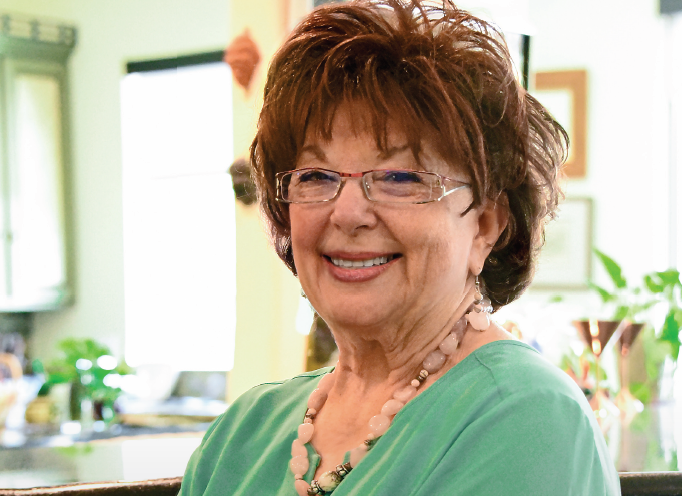It’s comforting to follow a recognized routine and travel the path that’s familiar. But according to Bara Rosenheck, it’s worthwhile to blaze new trails and change directions. Change is something Bara knows well. She has transitioned into many differing roles and lifestyles. For her, making changes in both personal and professional lives can enhance our growth and enrich our lives. The most recent change in Bara’s life came when she and her husband, Arnold, decided to retire and move from New Jersey to Sun City Shadow Hills in 2016. Bara, however, wasn’t quite ready to stop working. Her creative energies demanded she pursue a new direction. “That’s when I fell in love with writing,” she says. “After joining the Sun City Shadow Hills Writers Club, I immediately realized I had stories to tell.”
Bitten by the Writing Bug
In 2020, Bara released “Foolish Moments and Other Stories.” It’s a book filled with hilarious and real tales of past adventures like traveling down the Amazon River in a dug-out canoe and tending bar in Luxor, Egypt. After its release, Bara was bitten by the writing bug and two more books quickly followed.
She departed from her true-life adventures and next turned to writing crime novels. Dismayed by the many reports of assaults, Bara was drawn to exploring the causes and circumstances of criminal activities. “Justice for Julia” was published at the height of the “#MeToo” movement. It tells the story of a young woman, the victim of a random attack, who seeks closure. The book was a finalist in the Fiction: Novella category of the Best Book Awards sponsored by American Book Fest in 2019. Her next novel, “The Mid-Morning Murders,” was about an attorney trying to find evidence to help put a serial killer behind bars.
Be the Change You Wish to See
Writing is a departure from Bara’s previous work. She started her career in the 1960s as a high school teacher, but soon moved to the position of Director of Training at The Consortium for Educational Equity at Rutgers, The State University of New Jersey. While there she provided leadership and direction to educators and administrators in several State Departments of Education. Working to ensure equal educational rights and access for all. Bara earned the reputation of being a pioneer. She assisted the passage and enforcement of new anti-discrimination legislation at the state and federal level during the mid 1970s. She also marched, demonstrated, and lobbied to eliminate discrimination, bias, and stereotyping in housing and employment.
Her work on gender equity is documented in “Veteran Feminists Who Changed America 1963-1975,” and her accomplishments are recorded in The Marquis “Who’s Who of American Women,” 1998 edition. In 1996 Bara organized a committee designed to conduct one of the first United Nations Conferences to ban Female Genital Mutilation and worldwide violence against women. Many heads of state and other diplomats attended the conference convened at UN Headquarters in
New York City.
An Unexpected Change
In 1991 Bara experienced an extreme change in her personal life. A spinal cord injury left her paralyzed on the right side of her body and without feeling on the left side. Her prognosis was unknown. Working with physical therapists, Bara regained use of her right hand, arm and leg within the year. Slowly, she relearned how to walk and could return to work. This remarkable recovery brought new strength, confidence, appreciation, and gratitude. “Change, even unwanted change, brings us greater understanding and awareness of the goodness that surrounds us,” Bara says.
“The challenge we all face is to greet every change in the most positive ways we can. Bad news is a reality and can be frightening. But attitude is everything and can lead to greater learning and understanding.”
With renewed energy and commitment, Bara once again shifted gears and formed Bara Rosenheck Consultants. This group of consultants assisted educators, agencies, and businesses in their efforts to eliminate or reduce sexual harassment and inequitable practices.



